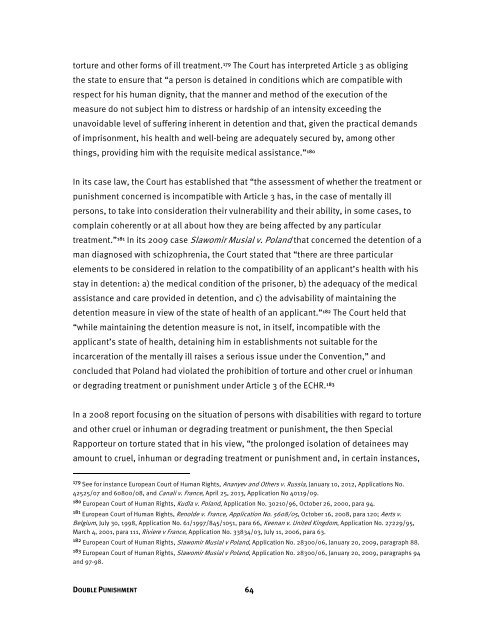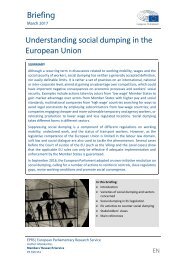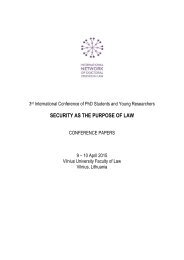DOUBLE PUNISHMENT
france0416web
france0416web
You also want an ePaper? Increase the reach of your titles
YUMPU automatically turns print PDFs into web optimized ePapers that Google loves.
torture and other forms of ill treatment. 179 The Court has interpreted Article 3 as obliging<br />
the state to ensure that “a person is detained in conditions which are compatible with<br />
respect for his human dignity, that the manner and method of the execution of the<br />
measure do not subject him to distress or hardship of an intensity exceeding the<br />
unavoidable level of suffering inherent in detention and that, given the practical demands<br />
of imprisonment, his health and well-being are adequately secured by, among other<br />
things, providing him with the requisite medical assistance.” 180<br />
In its case law, the Court has established that “the assessment of whether the treatment or<br />
punishment concerned is incompatible with Article 3 has, in the case of mentally ill<br />
persons, to take into consideration their vulnerability and their ability, in some cases, to<br />
complain coherently or at all about how they are being affected by any particular<br />
treatment.” 181 In its 2009 case Slawomir Musial v. Poland that concerned the detention of a<br />
man diagnosed with schizophrenia, the Court stated that “there are three particular<br />
elements to be considered in relation to the compatibility of an applicant’s health with his<br />
stay in detention: a) the medical condition of the prisoner, b) the adequacy of the medical<br />
assistance and care provided in detention, and c) the advisability of maintaining the<br />
detention measure in view of the state of health of an applicant.” 182 The Court held that<br />
“while maintaining the detention measure is not, in itself, incompatible with the<br />
applicant’s state of health, detaining him in establishments not suitable for the<br />
incarceration of the mentally ill raises a serious issue under the Convention,” and<br />
concluded that Poland had violated the prohibition of torture and other cruel or inhuman<br />
or degrading treatment or punishment under Article 3 of the ECHR. 183<br />
In a 2008 report focusing on the situation of persons with disabilities with regard to torture<br />
and other cruel or inhuman or degrading treatment or punishment, the then Special<br />
Rapporteur on torture stated that in his view, “the prolonged isolation of detainees may<br />
amount to cruel, inhuman or degrading treatment or punishment and, in certain instances,<br />
179 See for instance European Court of Human Rights, Ananyev and Others v. Russia, January 10, 2012, Applications No.<br />
42525/07 and 60800/08, and Canali v. France, April 25, 2013, Application No 40119/09.<br />
180 European Court of Human Rights, Kudla v. Poland, Application No. 30210/96, October 26, 2000, para 94.<br />
181 European Court of Human Rights, Renolde v. France, Application No. 5608/05, October 16, 2008, para 120; Aerts v.<br />
Belgium, July 30, 1998, Application No. 61/1997/845/1051, para 66, Keenan v. United Kingdom, Application No. 27229/95,<br />
March 4, 2001, para 111, Riviere v France, Application No. 33834/03, July 11, 2006, para 63.<br />
182 European Court of Human Rights, Slawomir Musial v Poland, Application No. 28300/06, January 20, 2009, paragraph 88.<br />
183 European Court of Human Rights, Slawomir Musial v Poland, Application No. 28300/06, January 20, 2009, paragraphs 94<br />
and 97-98.<br />
<strong>DOUBLE</strong> <strong>PUNISHMENT</strong> 64











